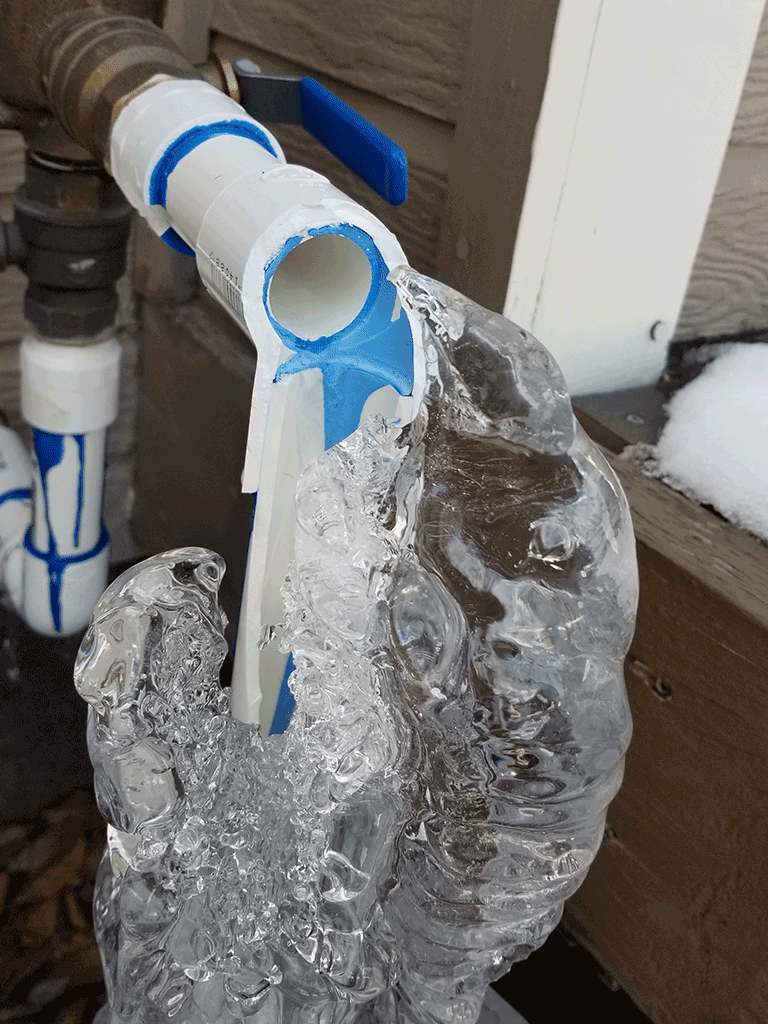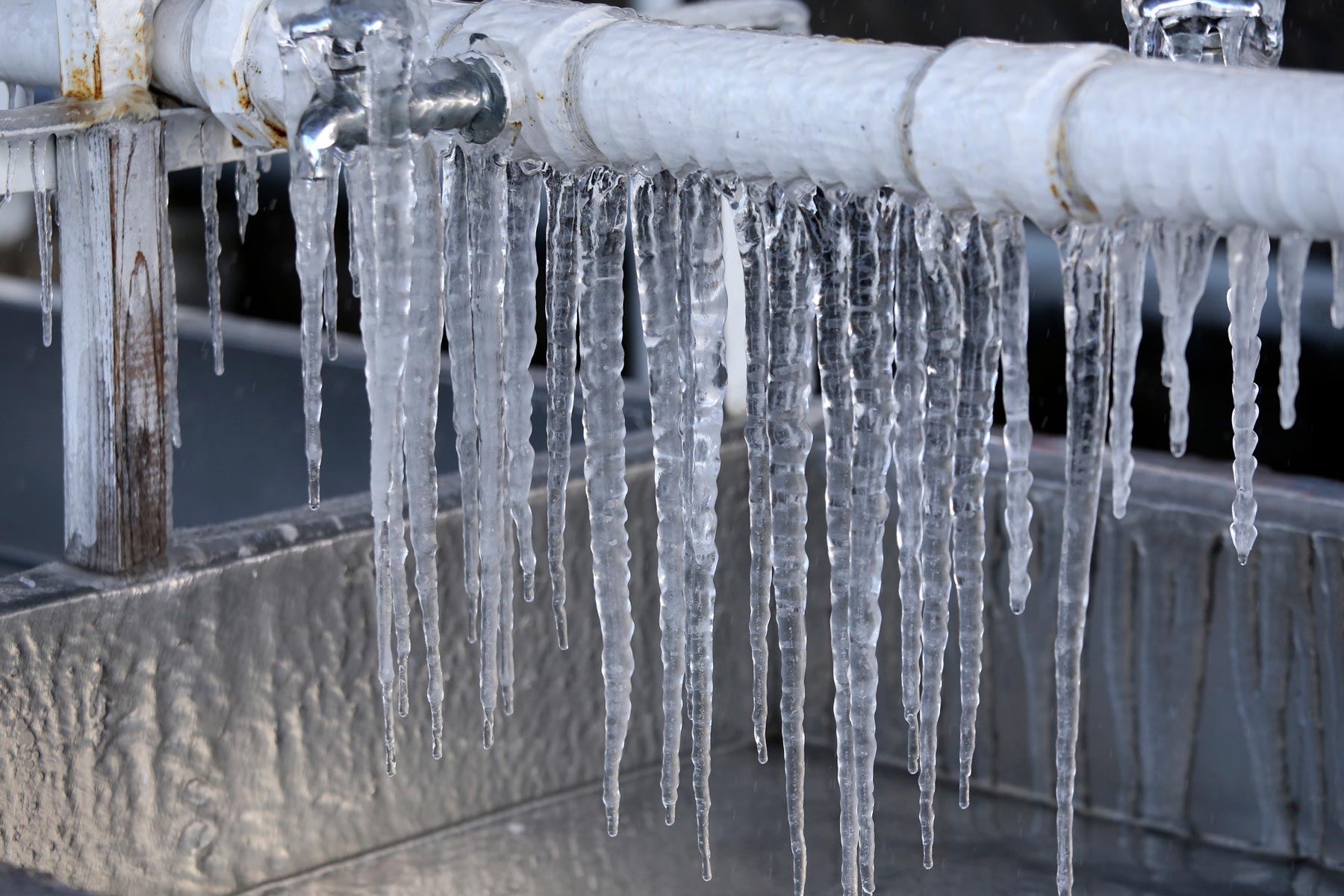Guidance for Avoiding Frozen Pipes in Cold Weather: Specialist Insights
Guidance for Avoiding Frozen Pipes in Cold Weather: Specialist Insights
Blog Article
They are making a few great annotation on Helpful Tips to Prevent Frozen Pipes this Winter as a whole in the content in the next paragraphs.

Cold weather can ruin your pipes, specifically by freezing pipelines. Here's just how to avoid it from happening and what to do if it does.
Intro
As temperatures decline, the risk of icy pipes increases, possibly resulting in pricey repairs and water damages. Understanding exactly how to prevent icy pipelines is essential for home owners in cold environments.
Prevention Tips
Protecting at risk pipes
Wrap pipes in insulation sleeves or utilize warmth tape to protect them from freezing temperatures. Focus on pipes in unheated or outside locations of the home.
Home heating methods
Maintain indoor areas adequately heated, especially areas with plumbing. Open cabinet doors to allow warm air to flow around pipelines under sinks.
How to identify frozen pipelines
Seek lowered water circulation from faucets, unusual odors or sounds from pipelines, and visible frost on subjected pipes.
Long-Term Solutions
Structural changes
Take into consideration rerouting pipelines away from outside wall surfaces or unheated areas. Include additional insulation to attics, basements, and crawl spaces.
Upgrading insulation
Invest in premium insulation for pipes, attics, and wall surfaces. Proper insulation aids maintain regular temperature levels and decreases the threat of frozen pipelines.
Securing Outdoor Pipes
Garden pipes and outdoor faucets
Separate and drain yard tubes before winter months. Install frost-proof spigots or cover exterior taps with shielded caps.
Understanding Icy Pipelines
What causes pipes to freeze?
Pipelines ice up when exposed to temperatures below 32 ° F (0 ° C) for prolonged durations. As water inside the pipes freezes, it broadens, taxing the pipeline wall surfaces and possibly creating them to break.
Risks and damages
Frozen pipelines can lead to supply of water disturbances, residential property damage, and expensive repair services. Ruptured pipes can flood homes and cause extensive architectural damages.
Indications of Frozen Pipes
Identifying icy pipelines early can prevent them from bursting.
What to Do If Your Pipelines Freeze
Immediate actions to take
If you think icy pipelines, keep taps available to eliminate pressure as the ice melts. Utilize a hairdryer or towels soaked in hot water to thaw pipelines slowly.
Verdict
Avoiding icy pipes needs proactive procedures and quick actions. By understanding the causes, signs, and safety nets, homeowners can secure their pipes throughout cold weather.
Helpful Tips to Prevent Frozen Pipes this Winter
UNDERSTANDING THE BASICS: WHY PIPES FREEZE AND WHY IT’S A PROBLEM
Water freezing inside pipes is common during the winter months, but understanding why pipes freeze, and the potential problems it can cause is crucial in preventing such incidents. This section will delve into the basics of why pipes freeze and the associated problems that may arise.
THE SCIENCE BEHIND FROZEN PIPES
When water reaches freezing temperatures, it undergoes a physical transformation and solidifies into ice. This expansion of water as it freezes is the primary reason pipes can burst. As the water inside the pipe freezes, it expands, creating immense pressure on the walls. If the pressure becomes too great, the pipe can crack or rupture, leading to leaks and water damage.
FACTORS THAT CONTRIBUTE TO PIPE FREEZING
Low Temperatures: Extremely cold weather, especially below freezing, increases the risk of pipes freezing. Uninsulated or Poorly Insulated Pipes: Pipes located in unheated areas, such as basements, crawl spaces, or attics, are more prone to freezing. Insufficient insulation or lack of insulation altogether exacerbates the problem. Exterior Wall Exposure: Pipes running along exterior walls are susceptible to freezing as they encounter colder temperatures outside. Lack of Heating or Temperature Regulation: Inadequate heating or inconsistent temperature control in your home can contribute to frozen pipes. PROBLEMS CAUSED BY FROZEN PIPES
- Pipe Bursting: As mentioned earlier, the expansion of water as it freezes can cause pipes to burst, resulting in significant water damage.
- Water Damage: When pipes burst, it can lead to flooding and water damage to your property, including walls, ceilings, flooring, and personal belongings.
- Structural Damage: Prolonged exposure to water from burst pipes can compromise the structural integrity of your home, leading to costly repairs.
- Mold and Mildew Growth: Excess moisture from water damage can create a favorable environment for mold and mildew growth, posing health risks to occupants.
- Disrupted Water Supply: Frozen pipes can also result in a complete or partial loss of water supply until the issue is resolved.
WHY CERTAIN PIPES ARE MORE PRONE TO FREEZING
- Location: Pipes located in unheated or poorly insulated areas, such as basements, crawl spaces, attics, or exterior walls, are at higher risk of freezing.
- Exterior Pipes: Outdoor pipes, such as those used for irrigation or exposed plumbing, are particularly vulnerable to freezing as they are directly exposed to the elements.
- Supply Lines: Pipes that carry water from the main water supply into your home, including the main water line, are critical to protect as freezing in these lines can affect your entire plumbing system.
- Underground Pipes: Pipes buried underground, such as those connected to sprinkler systems or outdoor faucets, can be susceptible to freezing if not properly insulated.
https://busybusy.com/blog/helpful-tips-to-prevent-frozen-pipes-this-winter/

We are very excited about How to prepare your home plumbing for winter weather and I'm hoping you enjoyed the entire entry. Liked our post? Please share it. Help somebody else locate it. Thanks for taking the time to read it.
Article Report this page